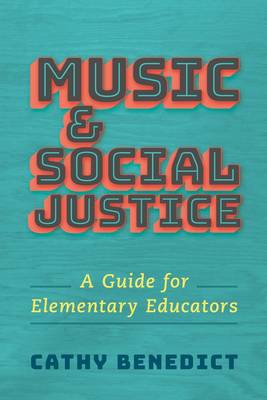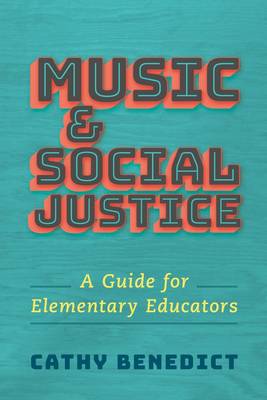
- Afhalen na 1 uur in een winkel met voorraad
- Gratis thuislevering in België vanaf € 30
- Ruim aanbod met 7 miljoen producten
- Afhalen na 1 uur in een winkel met voorraad
- Gratis thuislevering in België vanaf € 30
- Ruim aanbod met 7 miljoen producten
Zoeken
€ 35,45
+ 70 punten
Omschrijving
In this book author Cathy Benedict challenges and reframes traditional ways of addressing many of the topics we have come to think of as social justice. Offering practical suggestions for helping both teachers and students think philosophically (and thus critically) about the world around them, each chapter engages with important themes through music making and learning as it presents scenarios, examples of dialogue with students, unit ideas and lesson plans geared toward elementary students (ages 6-14). Taken-for-granted subjects often considered beyond the understanding of elementary students such as friendship, racism, poverty, religion, and class are addressed and interrogated in such a way that honours the voice and critical thinking of the elementary student. Suggestions are given that help both teachers and students to pause, reflect and redirect dialogue with questions that uncover bias, misinformation and misunderstandings that too often stand in the way of coming to know and embracing difference. Guiding questions, which anchor many curricular mandates, are used throughout in order to scaffold critical and reflective thinking beginning in the earliest grades of elementary music education. Where does social justice reside? Whose voice is being heard and whose is being silenced? How do we come to think of and construct poverty? How is it that musics become used the way they are used? What happens to songs initially intended for socially driven purposes when their significance is undermined? These questions and more are explored encouraging music teachers to embrace a path toward socially just engagements at the elementary and middle school levels.
Specificaties
Betrokkenen
- Auteur(s):
- Uitgeverij:
Inhoud
- Aantal bladzijden:
- 168
- Taal:
- Engels
Eigenschappen
- Productcode (EAN):
- 9780190062132
- Verschijningsdatum:
- 1/01/2021
- Uitvoering:
- Paperback
- Formaat:
- Trade paperback (VS)
- Afmetingen:
- 155 mm x 231 mm
- Gewicht:
- 235 g

Alleen bij Standaard Boekhandel
+ 70 punten op je klantenkaart van Standaard Boekhandel
Beoordelingen
We publiceren alleen reviews die voldoen aan de voorwaarden voor reviews. Bekijk onze voorwaarden voor reviews.











